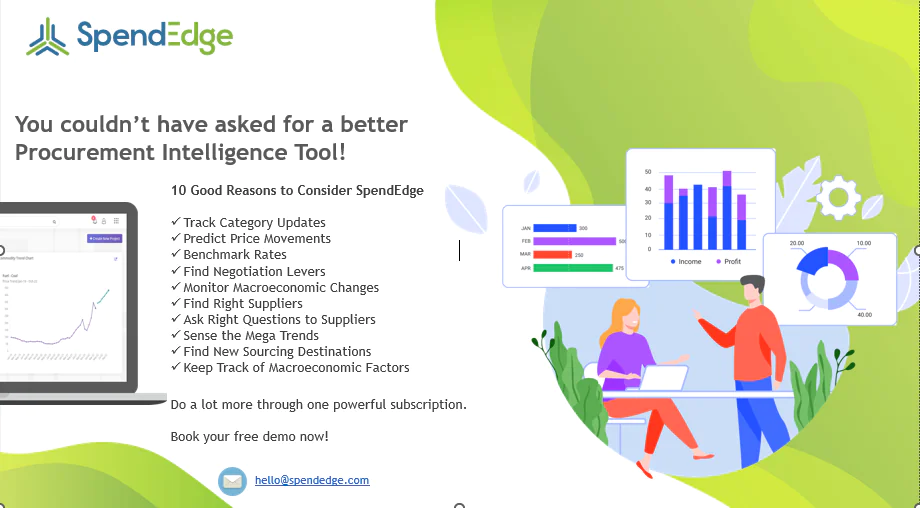In the fast-evolving pharmaceutical industry, efficient management in procurement and supply transcends a basic necessity; it becomes a strategic asset integral to a company’s success. This article provides a deep dive into the crucial aspects of supplier management, outlining how transformative approaches in procurement can drive significant value and foster innovation.
By exploring challenges, technological advancements, and strategic supplier relationships, we aim to equip industry professionals with insights and strategies that enhance their procurement operations and compliance, paving the way for sustained competitive advantage.
Supply Chain Management in the Pharma Industry: How it Works
The pharmaceutical supply chain is a complex network that ensures the delivery of life-saving medications to patients, involving multiple stakeholders and requiring stringent oversight at every stage. This section explores the dynamics of this critical system, emphasizing the coordination needed to manage risks and maintain efficiency.
Key Components of the Pharmaceutical Supply Chain
- Sourcing of Raw Materials: The journey begins with the procurement of raw materials essential for drug manufacturing. The quality and availability of these materials directly impact the production of pharmaceuticals.
- Manufacturing: Drugs are produced under strict regulatory conditions to ensure safety and efficacy. This stage is crucial for the transformation of raw materials into finished pharmaceutical products.
- Distribution Networks: After manufacturing, pharmaceuticals are distributed via various channels including wholesalers and direct distribution systems to reach retail pharmacies, hospitals, and other healthcare providers.
- Role of Pharmacies: As the final distributors, pharmacies play a vital role in ensuring that patients receive the correct medications, and managing stock levels efficiently to prevent shortages.
- Pharmacy Benefit Managers (PBMs): PBMs act as intermediaries between pharmacies, drug manufacturers, and health insurers, playing a critical role in managing drug benefits and negotiating costs
Strategies for Effective Management
- Leveraging Technology: Implementing advanced technologies like blockchain can enhance transparency and traceability across the supply chain.
- Robust Coordination: Ensuring strong collaboration among all stakeholders, from suppliers to healthcare providers, is key to smooth operations.
- Continuous Improvement: Regular assessment and adaptation of supply chain practices to address emerging challenges and technological advancements.
.
Key Pharmaceutical Procurement Challenges
The pharmaceutical sector faces unique challenges in procurement that impact both the operational efficiency and compliance standards of organizations. Key challenges include managing complex global supply chains, adhering to stringent regulatory requirements, and mitigating risks related to supply disruptions.
- Global Supply Chain Management: Managing a global supply chain involves coordinating with multiple suppliers across different countries, each with its own regulatory environments and logistical challenges. Learn more about procurement in the pharma industry.
- Regulatory Compliance: Ensuring that all procurement activities adhere to both local and international regulatory standards is crucial for maintaining product safety and company integrity.
- Risk Mitigation: Developing strategies to handle disruptions in supply, whether due to geopolitical issues, natural disasters, or supplier insolvency, is vital for maintaining steady production lines.
Navigating Risks Through Supplier Management Practices
Effective supplier management is critical in navigating the risks associated with pharmaceutical procurement. By developing robust supplier relationships and implementing rigorous management practices, companies can significantly reduce procurement risks.
- Supplier Evaluation and Selection: Implementing thorough vetting processes to select suppliers who meet all regulatory and quality standards.
- Contract Management: Crafting contracts that include clauses for compliance, quality assurance, and contingency plans to manage risks.
- Continuous Supplier Assessment: Regularly assessing suppliers to ensure ongoing compliance and ability to meet demand requirements. Discover more about pharma procurement challenges.
Traditional Supply Chain Management Components for the Pharma Industry
In the pharmaceutical industry, traditional supply chain management encompasses several key components that are critical to ensuring the efficient flow of products from manufacturers to end-users. This section outlines these fundamental elements, emphasizing how each contributes to the overall effectiveness and integrity of the pharmaceutical supply chain.
- Demand Forecasting: Accurate demand forecasting is essential to manage production schedules and inventory levels effectively. By predicting future demand for various pharmaceutical products, companies can minimize overproduction and shortages, thus maintaining a balance that meets market needs without excessive costs.
- Inventory Management: Effective inventory management strategies are crucial for handling the storage and turnover of pharmaceutical products. This involves strategic stockpiling, maintaining optimal inventory levels, and implementing just-in-time inventory practices to reduce waste and ensure the availability of essential medications.
- Quality Control: Rigorous quality control measures are vital throughout the pharmaceutical supply chain. This includes regular quality checks and compliance audits at each stage—from raw material acquisition to the manufacturing and final distribution of products—to ensure that all pharmaceuticals meet strict safety and efficacy standards.
- Logistics and Distribution: Efficient logistics and distribution networks are essential to deliver pharmaceuticals in a timely and cost-effective manner. This involves sophisticated transportation management systems that can navigate complex routes and handle sensitive products requiring special conditions, such as temperature control.
- Supplier Relationship Management (SRM): Building strong relationships with suppliers is key to securing a reliable flow of high-quality raw materials and components. SRM involves selecting the right suppliers, negotiating favorable terms, and continuously monitoring and improving supplier performance to foster mutual growth and reliability.
- Regulatory Compliance: Adherence to regulatory requirements is non-negotiable in the pharmaceutical industry. Supply chain management must ensure compliance with national and international regulations governing drug production and distribution. This includes tracking products throughout the supply chain to ensure traceability and rapid response capabilities in the event of a product recall.
- Risk Management: Proactively identifying and mitigating risks associated with the supply chain, such as supplier failures, logistic disruptions, and changes in regulatory landscapes, is crucial. Implementing robust risk management strategies helps in maintaining continuous supply chain operations and protects against unexpected challenges.
These components form the backbone of traditional supply chain management in the pharmaceutical industry. By optimizing these areas, companies can enhance their operational efficiency, maintain high standards of quality and compliance, and ensure the timely delivery of life-saving medications to those who need them most.
Leveraging Technology For Enhanced Supply Chain Visibility
In today’s technologically advanced era, the pharmaceutical industry is increasingly relying on innovative technological solutions to enhance the visibility and efficiency of its supply chain operations. Enhanced supply chain visibility not only improves management efficiency but also significantly boosts response times to market demands and logistical challenges. Below, we detail the key technologies that are reshaping pharmaceutical supply chain management.
- Integration of ERP Systems: Enterprise Resource Planning (ERP) systems are crucial for integrating procurement data across various departments, providing a unified view of supply chain operations. These systems facilitate better decision-making by centralizing information related to procurement, manufacturing, and distribution. For example, ERP systems can automatically reorder components based on inventory levels, track batch production, and monitor delivery schedules, all of which enhance operational efficiency and control.
- Adoption of Blockchain Technology: Blockchain technology offers unprecedented advantages in the realm of traceability and transparency. By maintaining a decentralized and immutable ledger of all transactions, blockchain technology ensures that every transaction is documented and secure. This capability is particularly valuable in combating counterfeit drugs in the market and maintaining regulatory compliance. Blockchain also facilitates smoother recalls of pharmaceuticals because of its ability to track products precisely throughout the supply chain.
- Advanced Analytics: Using predictive analytics to forecast supply needs and identify potential disruptions before they occur. Stay updated with pharma procurement supplier updates.
- IoT and Real-Time Data Tracking: The Internet of Things (IoT) enables real-time tracking of products throughout the supply chain. Sensors and RFID tags can monitor conditions such as temperature and humidity that are crucial for maintaining drug efficacy during transportation. This real-time data is invaluable for ensuring that all products meet safety standards upon arrival and can dramatically reduce the incidence of compromised products reaching consumers.
- AI-Driven Decision Making: Artificial intelligence (AI) technologies are becoming increasingly prevalent in optimizing supply chain decisions. AI can automate routine tasks, predict optimal inventory levels, and even suggest the best suppliers based on past performance and risk assessment. By integrating AI, companies can enhance their responsiveness and flexibility, adapting more quickly to market changes or disruptions.
- Cloud Computing: Cloud-based technologies facilitate greater collaboration across the supply chain. They allow for easy sharing of data across entities and geographical boundaries, ensuring all parties have access to real-time information. This capability is critical for coordinating multinational operations and supports scalability by enabling companies to more readily adjust their resources in response to global demand fluctuations.
By embracing these technological advancements, pharmaceutical companies can achieve a level of supply chain visibility that was previously unattainable. This visibility not only enhances operational efficiencies but also improves compliance with regulatory standards and response times to critical situations, thereby securing the supply chain against many traditional vulnerabilities
Securing The Future Of Pharma Through Tight Supplier Relationships
In the pharmaceutical industry, where the stakes involve not just business outcomes but also public health, securing robust supplier relationships is not just a strategic advantage—it’s a necessity. These relationships are foundational to maintaining high standards of product quality, ensuring timely delivery, and fostering continuous innovation. Here’s a deeper dive into how pharmaceutical companies can solidify these crucial relationships:
- Strategic Partnerships: Establishing strategic partnerships goes beyond typical buyer-supplier transactions; it involves creating long-term collaborations with key suppliers. These partnerships are structured around shared goals that advance both the interests of the pharmaceutical companies and the suppliers. For instance, joint investment in research and development can lead to innovations in drug formulations or new delivery mechanisms, benefiting both parties. Furthermore, these partnerships might include co-development agreements, shared intellectual property arrangements, and exclusive rights to new discoveries, all of which deepen the ties and commitment between companies and their suppliers.
- Supplier Development Programs: Investing in supplier development programs is critical to upscaling the capabilities of suppliers to meet the growing and evolving needs of the pharmaceutical industry. These programs may include training supplier employees on compliance with regulatory standards, improving manufacturing practices, or implementing quality management systems. By enhancing their suppliers’ abilities, pharmaceutical companies not only ensure a smoother, more compliant supply chain but also contribute to the overall industry standard, elevating the quality of products across the board.
- Regular Communication and Feedback: Open lines of communication and systematic feedback mechanisms are essential to align suppliers with the pharmaceutical company’s strategic objectives and performance expectations. Regular interaction can take many forms, including quarterly business reviews, annual strategy sessions, and regular operational meetings. These interactions serve as platforms to discuss performance metrics, areas for improvement, and future goals. Feedback mechanisms also help in promptly addressing any issues, thereby minimizing risks and disruptions in the supply chain.
- Technology Integration for Enhanced Collaboration: Leveraging technology can dramatically improve the efficiency and effectiveness of supplier relationships. Tools such as supplier portals, shared ERP systems, and collaborative platforms can ensure all parties have real-time access to necessary information like inventory levels, production schedules, and compliance documents. This technological integration facilitates a more synchronized supply chain and helps in building trust and transparency between pharmaceutical companies and their suppliers.
- Performance Incentives and Compliance Rewards: Implementing a system of incentives for exceeding performance metrics and compliance standards can further motivate suppliers to maintain high performance. These incentives could be in the form of financial bonuses, extended contracts, or more favorable payment terms. Conversely, compliance rewards for adhering to regulatory standards help reinforce the importance of compliance and encourage continuous improvement in those areas.
- Shared Risk Management: Finally, developing a shared approach to risk management can strengthen supplier relationships by aligning the interests of both parties in securing the supply chain against potential disruptions. This might involve joint strategies for managing geopolitical risks, natural disasters, or changes in regulatory landscapes that could impact supply continuity.
By fostering these enhanced supplier relationships, pharmaceutical companies not only secure their immediate supply chain needs but also build a foundation for future growth and innovation, ensuring they remain competitive in a fast-evolving marketplace.
Effective management in procurement and supply is pivotal for the success of pharmaceutical companies. By adopting advanced procurement strategies and technologies, businesses can ensure product quality, compliance, and cost-effectiveness, ultimately enhancing their competitive edge.





